Navigating the Transition - University to Work Life
I left university unceremoniously but excited to begin my journey in the world of work. What no one tells you about this journey, is how mentally straining it can be to apply for entry-level job after entry-level job, trying your hardest to display your personal edge over other graduates only to be constantly denied. However, as the wise former president of Uruguay Jose Mujica always says “In life you can fall down 1000 times, but the point is to have the willingness to stand up and start again.”
So I did, and finally my time came. As lockdown began in Sydney I started my first job working from home at Sparrowly Group.
As I settled in and began to work, it was clear this was a perfect fit and the start of something wonderful. The stars had aligned for me. But was this just persistence and luck, or were there other things secretly guiding me towards Sparrowly Group? I’m going to use my 20-20 hindsight to give you a guide on how to align your stars.
The Emotions
The initial excitement of receiving that phone call and meeting my prospective employer left me shaking and sweating. As I began to work and the excitement passed, I experienced fear and uncertainty; “Am I really good enough? What have I gotten myself into?”. If you’re like me, this will happen to you. It’s completely normal, in fact, if you didn’t experience these three emotions there’s a strong chance that this job doesn’t mean that much to you. Don’t be afraid if this roller coaster of emotions doesn't fade, it will take a good six months for you to truly settle in. Think about why you are applying for this job, is it because the work truly matters to you? Or is it simply because you need to earn money by using the skills you have gained?
Culture Fit
It’s difficult to understand at first, but team culture will have an enormous influence on your transition. Culture is more than just what you believe and how you work, it’s about the everyday invisible architecture and habits that are underpinned by core values and worldviews.
If your working culture doesn’t align with that of your new workplace, settling into the job becomes much more difficult. For example, at Sparrowly Group a lot of things about team culture were immediately clear to me as I stepped through the office and met with Giovanna. There are no set job titles, the phrase opportunity creator, problem solver is used instead. The office space resembles a household, a place to work but also to connect with people in the kitchen over a meal. All these things suggested culture with underlying values of integrity, family, flexibility, supporting each other and working collaboratively.
Skills
Of course skills are an important part of starting work to flex the muscles you've been growing at university, but there’s a reason everyone is talking about soft skills. Your hard skills will never be applied to their maximum potential if you don’t appreciate the complexities of IQ’s weird emotional cousin, EQ. Emotional intelligence means knowing how to remain intellectually flexible, connect with people on a personal level and connect the dots between the work you are doing and it’s greater purpose both for yourself and the society around you. I certainly knew that my knowledge of nanofabrication and semiconductors from my physics degree wouldn’t always be useful, but the scientific mindset, process thinking and value for evidence-based decision making would.
Given that these are fairly universal themes around study-to-work transitions, what advice can I offer you to make this journey better?
Never be afraid of feeling uncertain and fearful. Whilst it’s disgustingly gut wrenching to experience these emotions, it’s important to recognise you are feeling this way and allow yourself to, it probably means this job really matters to you. I took some time to decompress and reflect on why this matters to me and how I will let my strengths shine.
Do your research. If you don’t understand yourself and your core values, how can you expect to find a job that fits you? Take the time to distil your non-negotiable values and then sense these values being reflected through tone in job postings and applications. In my case, I recognised the collaborative and transdisciplinary tones in the Sparrowly Group job posting. There was a looseness about it that didn’t prescribe the perfect candidate, but allowed for individuality and cultural alignment to Sparrowly Group’s culture and values.
Don’t lean too heavily on your hard skills. The reality is, many graduates have identical skill sets to you. What differentiates you will often be soft skills such as how you express yourself, how you talk to people and connect with them and how well you remain intellectually flexible and ready to learn things outside your university background. For example, my love for science has given me a critical thinking mindset, which I rely upon everyday to scrutinise and stress test ideas whether I’m working on a business strategy or evaluating a state based program.
A final word on COVID
If you’re starting to work during lockdown like me, you may feel like work is now your entire life. However, this effect is still powerful outside of lockdowns. It’s vital to balance your work and life and be strict with yourself to take breaks and completely shut off from work at reasonable hours. If my story can provide you with anything, it’s the hope that even during the worst of times, our resilience and persistence will drive us towards success and with an open, flexible mindset we can achieve anything we set our minds on.
Federico Moreno is a Problem Solver, Opportunity Creator at Sparrowly Group - a boutique management consultancy that provides considered, objective planning that enables thriving industries and communities.

